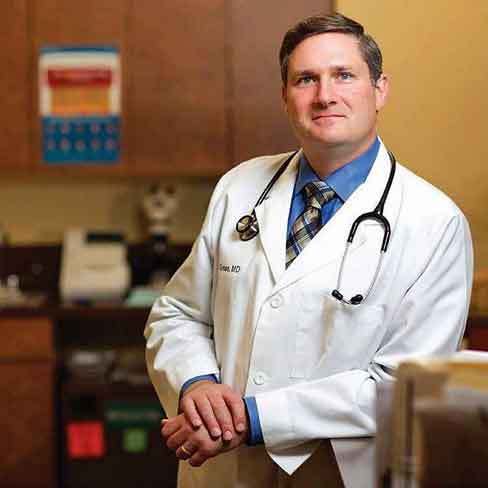Mercatus Institute — MEETING: Healthcare Innovators’ Dinner
Dr. Beth Haynes, BRI executive director was invited to a hand-selected group of healthcare innovators to a dinner and discussion in San Francisco, CA, sponsored by The Mercatus Institute.
Dr. Beth Haynes, BRI executive director was invited to a hand-selected group of healthcare innovators to a dinner and discussion in San Francisco, CA, sponsored by The Mercatus Institute.
Join us for a full day of presentations, workshops, debates and lectures with some of the top minds in the healthcare profession, including a Keynote address by Dr. Patch Adams. BRI is an event sponsor, and Dr. Lee Gross, founder of Epiphany Health, President of Docs4PatientCare Foundation, and great friend to BRI will be part of the day's events.
 Dr. Lee Gross, founder Epiphany Health
Dr. Lee Gross, founder Epiphany Health
Is healthcare a fundamental human right? Or is it a commodity to be accessed on the free market? What is the role of the government in healthcare? Get in on the debate! In "Stage of Mind" track.
Featuring: Lee Gross, MD, President and Founder, Epiphany Health, and President, Docs 4 Patient Care Foundation
02/11/16 Guest Sally Pipes. Sally Pipes steps into the Doctor's Lounge to discuss with Dr. Hal Scherz the top healthcare issues we will face in 2016.
02/25/16 Guest Dr. Richard Armstrong. Dr. Richard Armstrong joins Dr. Scherz and Dr. Koriwchak, D4PC Foundation doctors in the Doctor's Lounge to discuss the top issues in healthcare.
BRI sponsored a table, making many contacts and gaining an inquiry into a 2nd international chapter in Tel Aviv, Israel.
Beth Haynes, MD, Executive Director of the Benjamin Rush Institute, joins Dr. Michael Koriwchak in the Doctor's Lounge to respond to some of the problems identified and critique the solutions.
01/22/15 Guest Dr. Richard Armstrong, M.D., BRI Board member and Docs4PatientCare Foundation treasurer.
Richard Armstrong, MD FACS joins host Mike Koriwchak, MD to discuss the shifting tides motivating doctors to finally start paying attention. Much of a reflection of the larger American public, more and more of the 800,000 plus physicians in America are awaking to the impact of ObamaCare on the practice medicine.
Dr. Beth Haynes, BRI executive director, delivers a talk at ATLAS Summit 2016 @ Freedom Fest: What Insurance Is and Isn't—Getting Medical Costs Under Control.
There is much talk about how to control medical costs. Medical inflation continues to outpace general inflation. Why this is happening has much to do with the fact that what is called "health insurance" really isn't insurance. We argue that coerced wealth distribution is immoral, but this argument does not resonate with everyone. Being abel to also argue the economic aspects of healthcare can strengthen your ability to make the case for freedom in medical care. Come learn about the nature of insurance, what it is and isn't, why current health policy is doomed to fail, and what better alternatives exist.
Dr. Beth Haynes, BRI executive director, delivered a talk at ATLAS Summit 2016 @ Freedom Fest: Engaging Our Future Physicians.
It is important that we undertake the task of engaging our future physicians. What are they learning about health policy? Given the state of higher education today, it's no surprise that health policy instruction at medical schools is government-centric. But what is surprising is how little formal policy instruction students receive, which presents a great opportunity to interject the voice of reason into the conversation. Benjamin Rush Institute is doing exactly that. In just the fall semester of 2016, we reached 1300 medical student5s. Come hear how we are presenting the ideas of individual rights and limited government in a way that even liberal medical students are wiling to consider these alternatives.
Dr. Beth Haynes, BRI executive director delivered a talk at the 2016 ATLAS Summit @ Freedom Fest, What About the Poor? How to Win the Debate Without Selling Your Soul.
In order to engage those who are skeptical but potentially persuadable to free market ideas, we need to answer concerns about what happens to society's most disadvantaged in a powerful, truthful and compelling way. This is a major concern of young people, who frequently have a strong desire to help others, but who are typically economically ignorant and think with their hearts. In order to reach them we need to address their concerns without compromising on our fundamental principles. Come learn what tactics are working with students and are applicable to a much broader audience.
Imagine your excitement as a parent getting ready to attend your child's graduation from medical school. Instead, you attend his funeral--yet another medical student suicide victim.And statistics show no improvement even when a medical student becomes a doctor.
"Medical student and physician suicide is an epidemic. It is estimated that 400 doctors die by suicide in the United States each year. That's the equivalent of an entire medical school gone! The second leading cause of death among medical students is suicide--a well-known occupational hazard in medicine. Yet no medical organization is tracking these suicides. Why? And how can we solve a problem when it's hidden from us?"
The more awareness we raise, the more we can speak with one voice--a voice of solidarity--to find the root causes of physician and medical student suicide, and promote solutions to turn the tide.
Fulfilling a life's passion to care for others shouldn't mean personal suffering--or worse.
Benjamin Rush Institute sent nine medical students to the American Academy of Private Physicians annual Direct Primary Care conference.